The child's first right (1932)
Género : Drama
Tiempo de ejecución : 1H 18M
Director : Fritz Wendhausen
Escritor : Thea von Harbou
Sinopsis
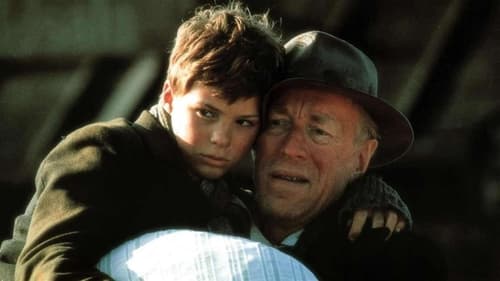
A finales del siglo XIX, dos emigrantes suecos, Lasse Karlsson y su hijo Pelle, llegan a la isla danesa de Bornholm con la esperanza de encontrar trabajo en una granja y ahorrar suficiente dinero para viajar a los Estados Unidos de América.
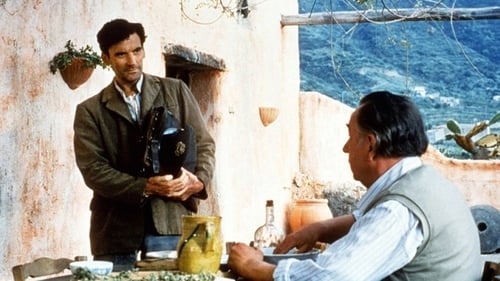
Mario (Massimo Troisi) es un hombre sencillo que acepta un empleo de cartero. Su trabajo consiste en llevar el correo a un único destinatario, el poeta chileno Pablo Neruda (Philippe Noiret), que vive exiliado en el pequeño pueblo italiano. Mario se siente fascinado por la figura de Neruda, y entre los dos hombres irá creciendo una gran amistad.
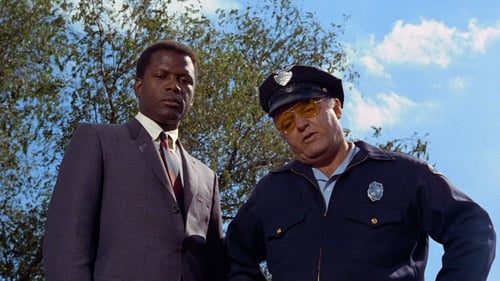
En una pequeña población de Mississippi, el policía Sam Wood descubre el cadáver de un industrial. Poco después, detiene en la estación a un hombre negro que, tras ser interrogado por el jefe de la policía local, Billl Gillespie, resulta ser un inspector de la policía de Filadelfia llamado Virgil Tibbs. Ambos policías deciden colaborar para investigar el asesinato.
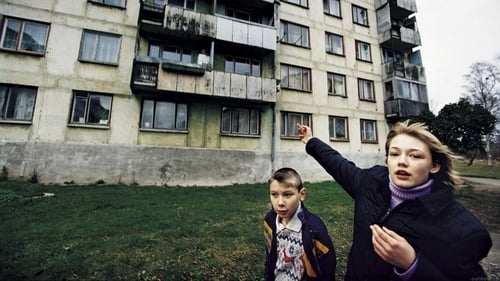
A sus 16 años Lilja es una joven rusa que ha sido abandonada por su madre y lleva una vida miserable en una ciudad pobre de la decadente ex-Unión Soviética. Su única vía para poder escapar del hambre y de la pobreza más extrema es prostituyendo su cuerpo esporádicamente. Entre toda esa desdicha su único amigo es Volodja, un niño de 11 años adicto al pegamento, ambos intentan escapar de la realidad soñando con una vida mejor. Un día parece que esa vida soñada por fin se pone al alcance de Lilja cuando conoce a Andrei, del cual se enamora y éste le propone que se marche con él a Suecia y empiece una nueva vida.

Rosetta, una joven de 17 años que vive con su madre en una caravana, busca desesperadamente un trabajo digno.
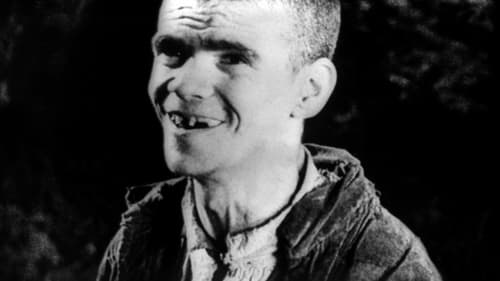
Cortometraje documental que hace un retrato de Las Hurdes (Cáceres), una de las regiones más pobres y menos desarrolladas de la España de 1932. La insalubridad, la miseria y la falta de oportunidades provocan la emigración de los jóvenes y la soledad de quienes se quedan en esta desolada región extremeña.

Three teenagers with troubled families are unable to adjust at home and in high-school. Tempted with an easy, carefree life they soon pass from misdemeanors into serious crime - and will suffer for it. Sometimes, repentance comes too late.

In the mountains of Northern Thailand lies a boarding school. The students come from different tribes in the area and live together with their Thai teacher, grow their own crops and cook their own meals while continuing their education. The biggest question on their mind, having spent all their lives in the mountainside, is where the rivers running down the hills end. If they pass the final exams their reward is a trip to the end of the river, to the ocean itself. The children are poor, some orphans, and most of them only speak their tribe's language, but all try their best to pass the exams to be able to take the long-awaited trip. This trip is not only a journey from the children's villages to the ocean but also a journey that symbolizes the change from childhood to adulthood.

A gynecologist attempts to rid the world of sexual problems by separating sex on the one hand and reproduction, which he feels should be left to artificial wombs.

DREAMING NICARAGUA is a film about HOPE. It's about love for the dignity and courage of the human spirit that, even immersed in uttermost tragic conditions, fights for a better life, and in this case, with a friendly SMILE. DREAMING is a sensitive and lyrical portrayal of four children living in extreme poverty in Nicaragua. The film takes us beyond their hardships and gives voice to the youngsters, who are surprisingly funny, hopeful, and optimistic. A traveling art teacher provides a safe arena for our four unlikely protagonists to express their innermost thoughts. When painting, the kids momentarily escape the stresses of their reality into a world of dreams and ideas, a stark contrast to their lives outside: a vicious cycle of hunger, child labor, and violence. Despite the extreme circumstances, the children and their families face their lives with an inspiring unity, strength and humor.

During the last half-century, Cambodia has witnessed genocide, decades of war and the collapse of social order. Now, documentary filmmaker Rithy Panh looks at an irreparable tragedy that is less visible, yet no less pervasive: the spiritual death that results when young women are forced into prostitution. Angry and impassioned, PAPER CANNOT WRAP UP EMBERS presents the searing stories of poor Asian women whose lives were violated and their destinies destroyed when their bodies were turned into items of sexual commerce.

The poor may always have been with us, but attitudes towards them have changed. Beginning in the Neolithic Age, Ben Lewis's film takes us through the changing world of poverty. You go to sleep, you dream, you become poor through the ages. And when you awake, what can you say about poverty now? There are still very poor people, to be sure, but the new poverty has more to do with inequality...

The movie consists of three episodes that explore the lives of poor and desperate in Iran. In episode one, a very poor couple with many crippled children abandon their newly born baby in hopes that it will have a better future. In the second episode, a mentally impaired and isolated young man tries to take care of his senile mother who is almost dead. In the third episode, a cowardly and desperate peddler tries to escape from his boss.
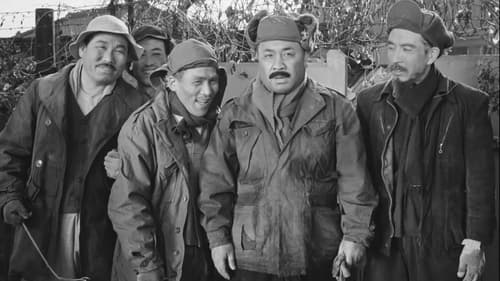
A man tries to raise his two sons and two daughters under some of the most adverse conditions known to man. The father operates a horse-drawn cart, but in a city that is modernizing after the destruction of the Korean War, automobiles are making carts obsolete. The children are experiencing difficulties as well. The eldest son has flunked the bar exam twice and is not hopeful of passing it a third time to become a lawyer. The eldest daughter is mute and married to an abusive husband. The younger daughter tries to pose as a rich university student to move up in life. The youngest son has a penchant for petty theft.
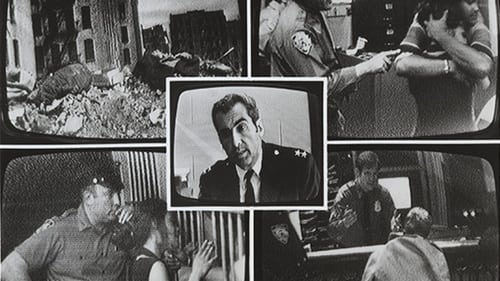
The Police Tapes is a 1977 documentary about a New York City police precinct in the South Bronx. The original ran ninety minutes and was produced for public television; a one-hour version later aired on ABC. Filmmakers Alan and Susan Raymond spent three months in 1976 riding along with patrol officers in the 44th Precinct of the South Bronx, which had the highest crime rate in New York City at that time. They produced about 40 hours of videotape that they edited into a 90-minute documentary.

Drama based on a play by Friedrich Wolf. Hete is pregnant, hoping to have soon a family with her fiancé Paul. When the factory, where she and Paul work, sacks all striking workers, she tries to find a legal way for abortion. But there is only the illegal option - the eponymous cyanide.

Gardoni, a down-on-his-luck vaudeville performer, is taken in by a fellow performer, a clown who has a bicycle riding act. Gardoni shows his appreciation by stealing the clown's act and his girlfriend, whom he marries.

Using an embedded Iraqi camera crew, AFI has delivered an unprecedented look at life inside post-war Iraq, all from the unique perspective of a precocious twelve-year-old boy. Doe-eyed and adorable Kheer Allah lives with his mother, father, two brothers and sister. Their "home" has no furniture and no modern appliances, except for an old television and radio sitting precariously atop a stack of used tires. There's no meat on this family's table. Home-baked pita bread is the staple in this beyond-poor household. School is out of the question too. Young Kheer Allah must work every day to help his family survive. This daily struggle forms the heart of this remarkable film. Through the wind-swept and war-ravaged streets of his neighborhood, Kheer Allah parlays his abundant charm into a variety of odd jobs that bring little money, but much satisfaction to his ever-smiling face.

The film tells the story of a young man who dreams of securing high jobs by completing his doctorate, but is forced to spend his days in a pig farm.

Raimundo y su hermana sueñan con una vida mejor, muy diferente de la que han llevado sus padres. (FILMAFFINITY)


















